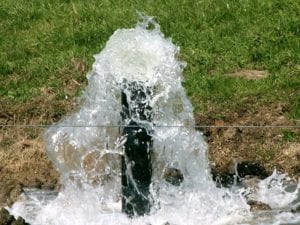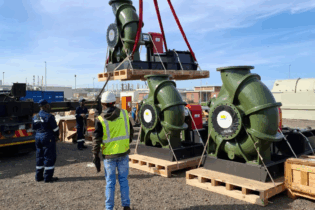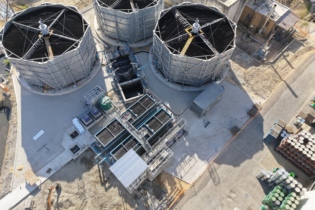
Dr Shafick Adams Executive Manager of the Water Research Commission
“As our climate is changing and the main input into our water resources, rainfall, becomes more variable in time and space we need to adjust how we manage and value our water resources,” Adams notes.
Addressing inefficiencies
He believes the inefficiencies in the way we handle our existing water supplies is holding the country back and costing money.
“Let us consider what is called the “Priority District Municipalities that are dysfunctional” – these municipalities sit on top of our higher exploitable groundwater resources areas. Yet the resource is ignored in the main or poorly managed. Because we are obsessed with building dams; groundwater can be considered the Cinderella resource,” he explains.
He adds that by including this under-utilised resource in our water supply mix with other water sources like direct wastewater reuse, rain and storm water harvesting we can improve our water security.
Radically changing our approach to water 
“At the same time, we need to overhaul our deteriorating water infrastructure. The Water Research Commission estimated that our non-revenue water loss amounts to around R7 billion and a large part is because of leaking infrastructure.”
“On the demand side, we need to radically change our approaches to water use across all sectors. We need to upscale sanitation technologies that uses no or significantly less water to flush our toilets.
“The way we design our buildings and cities need to radically change to become water and energy efficient. Imagine the manufacturing opportunities if we need to retro-fit cities and create new industries that supply water wise technologies.”
Adams says this approach needs to be supported by an increase in research and development spending.
Water as a contributor to the GDP
“Our declining manufacturing sector certainly needs this push. The net benefit will be to the economy; water innovations and technologies can contribute to get us out of this ‘growth trap’ that we find ourselves in,” he notes.
“South Africa’s water economy can reduce the high levels of unemployment, poverty, and inequality. Water and sanitation wise manufacturing is a great way to achieve this. Inefficient use and management of our water resources hampers our growth efforts and water needs to be better valued as a major direct and indirect contributor to GDP,” he concludes.







